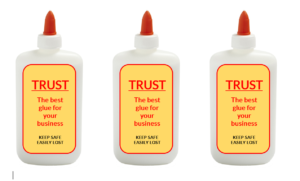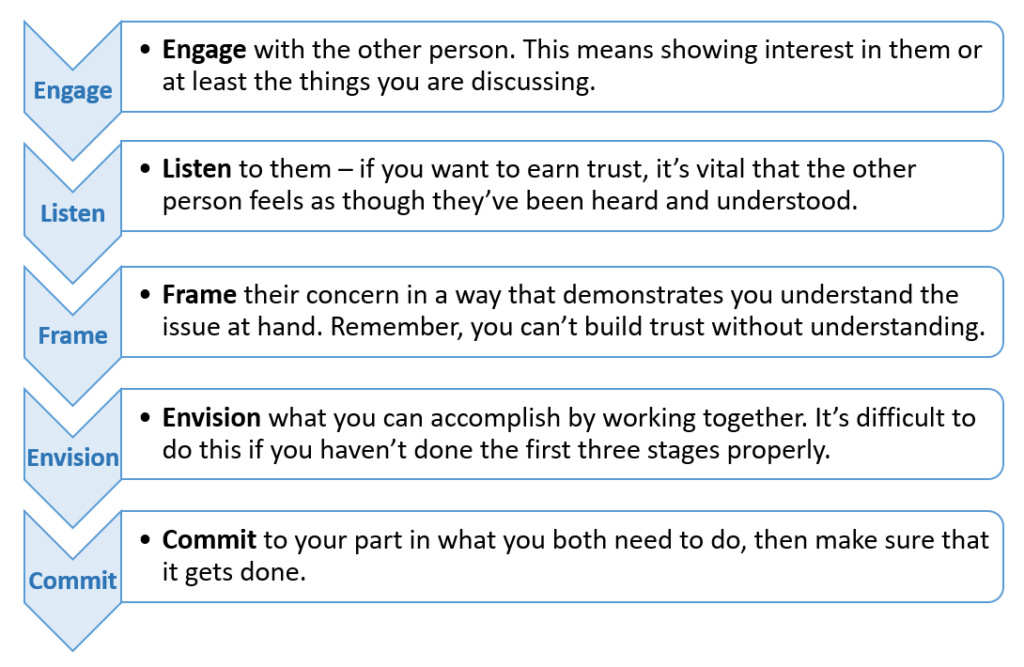“If people like you, they’ll listen to you, but if they trust you, they’ll do business with you.” — Zig Ziglar

Trust is the glue that holds your business together and without it you could find yourself without customers, suppliers and staff. It’s hard to dispute that trustworthiness is an important part of winning and retaining new business and staff so the big question is “How trustworthy are you and your business?
And if you don’t own the business you work in it may be difficult to get things done if your team, your boss or your customers don’t trust you. The same can also be said for personal and family relationships.
Trust is clearly important but what is it, how can you measure it and how can you improve your trustworthiness?
This is where the TRUST EQUATION can help. It was developed by David Maister who asked these questions in relation to professional service firms. However, I’ve shared it with a whole range of different people who have found it helpful when trying to understand how they might appear to their customers and staff and whether their behaviour could be considered trustworthy. The equation is simple:

Each of the elements can be used to describe a personal value or behaviour. Let’s dig a bit deeper into what they actually mean:
Credibility –Behaviour that makes you convincing and believable - often reflected by the words you use. People will recognise your credibility by, for example, the way you discuss your expertise, knowledge and capability.
Reliability –Behaviour that shows others that you are dependable - often reflected by the things that you do. People will recognise you are reliable if you take responsibility and deliver on your promises.
Intimacy - A reflection of your emotional intelligence – people will see this through behaviour that demonstrates your empathy and respect towards them and others.
Self-orientation – Behaviour that reflects your personal motives – While it is natural to have some self-interest, too much can be perceived as devious and if you play a zero-sum game, you’re likely to lose in the longer term.
The first three values/behaviours are the numerator of the trust equation so the better you live by them, the more you’re likely to be considered trustworthy. However your trustworthiness can be undermined if your level of self-orientation is too high, so behaviours such as “win at all costs”, misrepresenting facts or withholding useful information etc. can quickly undermine your efforts to be credible, reliable and intimate.
Finally, if the Trust equation resonates with you, Maister’s five-stage process for building trust should also be useful. It goes like this:

Trust can be hard to win and can be easily lost. If you’re feeling under pressure to get results, win a sale, complete a project etc., remember the trust equation and resist the temptation to take shortcuts. Its always worth remembering that “If people like you, they’ll listen to you, but if they trust you, they’ll do business with you.”